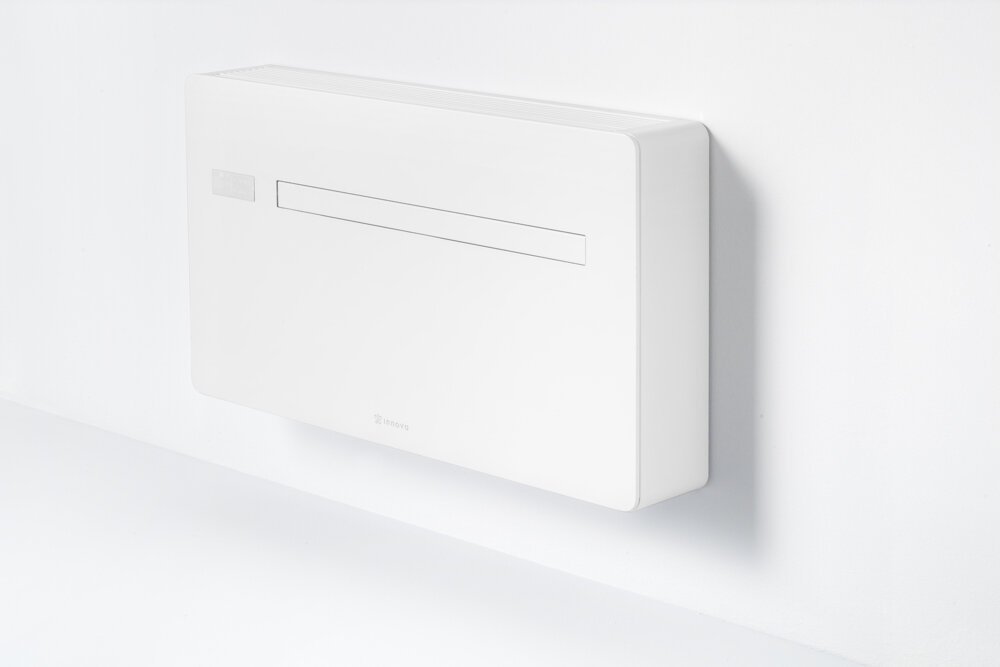7 Amazing Benefits of Installing Heat Pumps in Multi-Residential Buildings
Thinking about installing a heat pump system in your residential building? Heat pumps are an excellent and proven technology that is rapidly gaining popularity in the Canadian and US markets. Improved technology in design and installation are making Heat Pump Systems one of the most efficient and cost-effective alternatives in the market and considerably increasing Landlord's annual savings. Let’s look at the amazing benefits of Heat Pumps and how they are better than the alternatives.
What is a Heat Pump?
A Heat Pump is an eco-friendly and energy-efficient heating and cooling system that can be installed in a single-unit home, commercial, or multi-residential building. It is a great alternative to other heating and cooling systems as it supplies heat in the winters and cooling in the summers. With this dual benefit in one system, the Heat Pumps have a competitive edge
over the other technologies.
How do Heat Pumps work?
Simply put air-source heat pumps transfer heat from one area to another. They “pump” heat out of the outside air and transfer it indoors through a highly
energy-efficient mechanical process, which is the same way refrigerators work. In the summer, the system reverses by transferring heat from inside to outside, thereby producing cooling inside. Unlike separate furnace and air conditioning units, a Heat Pump is able to perform both heating and cooling as a single unit, which helps with waste management.
Benefits of Installing Heat Pumps in Multi-Residential Buildings
If you are a landlord or property manager of a multi-residential building or even a single homeowner, this article will help you understand the benefits of installing heat pumps as it pertains to lowering operating costs and carbon emissions.
Heating and Cooling Function in One
The first and one of the most important benefits of installing a Heat pump in a Multi-Residential building is that it is a single system that provides heating and cooling throughout the year. Therefore, it will save you from installing separate heating and cooling systems and hence reduce the cost of equipment and installation. As Heat Pumps have proved to transfer more energy than they consume, it accounts for less environmental waste and increased sustainability.
2. Increased Efficiency as Compared to Electric Heating
Heat Pumps are more efficient than other heating and cooling systems. According to this article written by Robert Brecha, a Professor of Sustainability, at the University of Dayton, electric heat pumps are three to four times more energy-efficient than furnaces.
3. Energy and Carbon Savings
Multi-residential buildings use greater amounts of energy to heat or cool the entire premises as thousands of people dwell in these buildings. Furnaces produce heat whereas heat pumps work by transferring heat from outside sources. The switch to Heat Pumps will emit lower net emissions than the direct combustion of fossil fuels. Therefore, replacing fossil fuels with clean and renewable sources of energy to heat our homes is a great choice if we want to play our part in protecting our environment.
4. Improved Sustainability
Heat pumps are powered by electricity, so the building will save substantially on fuel consumption. It is over 100 percent efficient in various temperate climates and can serve as both a heater and air conditioner. As published in Environmental Research Letters, greenhouse gas emissions could be lowered by installing heat pumps for space heating.
5. Save Dollars on your Energy Bills
If you are worried about inflation, and increasing heating and cooling costs in your Multi-Residential buildings, then Heat Pumps are the right choice for you. Installation of Heat Pumps in buildings has seen an increase in Cap Rate Value. For example, Gigawatt sees an increase of $30,000 per suite on average in Cap Rate Value. (The Capitalization Rate or Cap Rate is the rate of return on a real estate investment property based on the income that the property will generate).
6. Improves Rental Income for your buildings
One of the greatest benefits of installing Heat Pumps in Multi-residential buildings is that it improves net rental income for your buildings. Heat pumps will lower your energy expenses while also modernizing your rental suites, offering a better value and living experience for tenants (zone-controlled heating and cooling).
7. Less burden on the Economy
According to the study conducted by Parth Vaishnav, an assistant professor at the School for Environment and Sustainability at the University of Michigan and a co-author of the paper, installing heat pumps would help avoid $600 million in health damages and $1.7 billion in climate damages each year.
After learning about the benefits of Heat pumps compared to other traditional methods, you can now identify which one is right for you. If you are a landlord or a property manager for a
Multi-residential building, these tips will help you in choosing the best heating and cooling system for your buildings, saving you thousands of dollars. To gain all of these benefits, check out our Products Section to find out which one is suitable for you or contact our experts today to get started on your retrofit or Installation in your building.
References:
Brecha, R. (2021, June 14). Electric heat pumps use much less energy than furnaces [Review of Electric heat pumps use much less energy than furnaces]. The Conversation.https://theconversation.com/electric-heat-pumps-use-much-less-energy-than-furnaces-and-can-cool-houses-too-heres-how-they-work-154779
Rocheleau, J. (2021, September 2). Heat Pumps Can Lower Home Emissions, but Not Everywhere [Review of Heat Pumps Can Lower Home Emissions, but Not Everywhere]. EOS.https://eos.org/articles/heat-pumps-can-lower-home-emissions-but-not-everywhere
3. https://seas.umich.edu/research/faculty/parth-vaishnav




